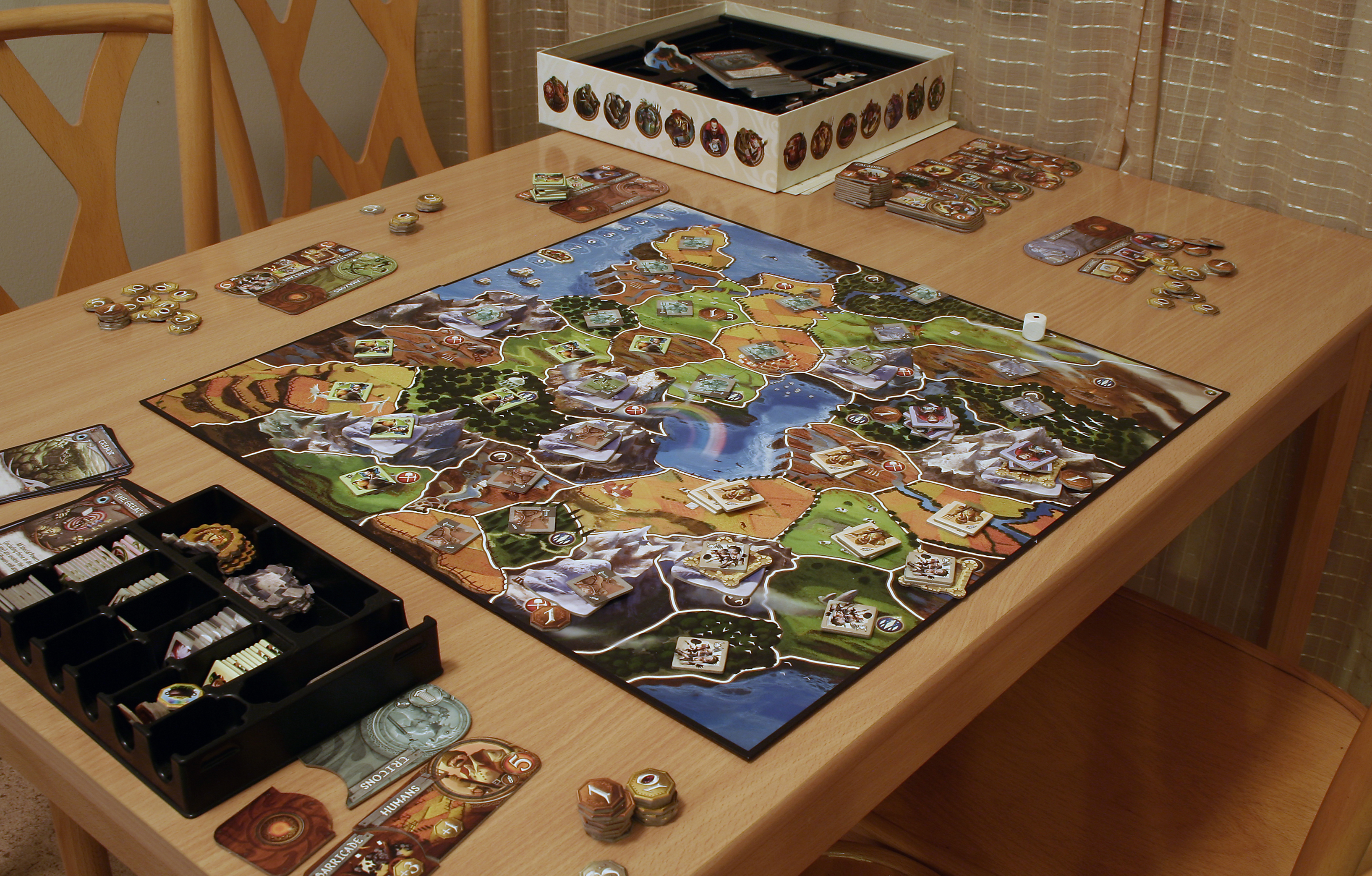8 Classic Board Games and Their (Better) Modern Equivalents
Sep 6, 2016 • Tim Henares

Sep 6, 2016 • Tim Henares

If you haven’t been living under a rock lately, you might have noticed a huge upswing in popularity for board games, what with all those board game cafes showing up all over the metro. Not everyone has jumped into the fray, though, assuming that none of these newfangled games could ever possibly beat the classics, such as Monopoly, Snakes and Ladders, or Risk.
We would love to burst your bubble today and tell you that for the most part, all those games have already been surpassed by better game design less dependent on luck and more rewarding of actual skill. But with hundreds of games to play in even the least-stocked of these board game cafes, where do we get started? Here’s a handy guide to jump from the classics to the contemporaries.
The Classic: It’s a game of pure luck. First to the 100th square wins. Sometimes, some ladders will help you go faster. Sometimes, some snakes will bring you back someplace. If you are playing with very exacting people, they will insist that the only way to win is to roll the exact number to the end. Anything higher means you have to move back the excess number of steps.
The Problem: You’re not playing a game, you’re just letting the dice do the work for you. All things considered, it’s a game of chance with nothing at stake unless you’re insane enough to put money or clothes on the line.
The Replacement: Odin’s Ravens
Solving The Problem: As a racing game, you want to have control and strategy, instead of relying on pure luck to get you by. As a two-player game with identical pieces and identical decks of cards, you keep some elements of luck while being given strategic options to navigate your way as one of Odin’s Ravens from him and back to him. Instead of relying on the dice to get you there, you have to use your wits and keep track of the weapons available to both you and your opponent in order to win the race.
The Classic: It’s a game of mystery and investigation, and as simple as it might seem, the strategies to win the game are countless. While some players claim to have “broken” the game, the game remains to be a classic because it is the bare minimum of combining luck and strategy with a very entertaining murder mystery theme.
The Problem: Navigation around the board is tedious when what you want to really be doing is investigating and solving a mystery.
The Replacement: Mysterium
Solving The Problem: Instead of board navigation, you are given the opportunity to solve the mystery by being given word clues that relate to paintings you are looking at. The only catch is that one player has to be the clue-giver, and they don’t get to actually play so much as they only give one-word clues that point to a picture. All in all, it’s a pretty entertaining mashup of Clue and a pretty popular modern game, Dixit.
The Classic: Strategy in numbers! You know how Risk works: you put down a requisite number of troops to overhwelm opposing forces, and a die roll determines warfare to some extent for you. It’s definitely a fun and strategic romp, and those toy soldiers do look cool.
The Problem: Minimal flavor and variety for strategy because it’s purely a number-crunching game, when you think about it.
The Replacement: Small World
Solving The Problem: Small World reduces the tedium of putting soldiers down by giving your soldiers powers and abilities based on their civilization and their class. This healthy variety for strategic combinations adds just the right amount of strategic variance to the classic Risk game, and much more flavor than ever before.
The Classic: Trivia! It’s like Jeopardy, but with the added advantage that you could memorize the questions and answers in your spare time.
The Problem: Precisely what was mentioned above.
The Replacement: Time’s Up: Title Recall
Solving The Problem: Part Charades, part Taboo, part Trivial Pursuit in terms of knowing titles of books, movies, plays, TV shows, and songs, Time’s Up is just what the doctor ordered because no matter how hard one tries to memorize these cards, you will always find yourself in the difficult position of having to interpret what your teammate’s gestures mean, and after three rounds using the same pool of cards, everyone is supposed to have memorized all the cards to some extent by then.
Pages: 1 2
Input your search keywords and press Enter.
